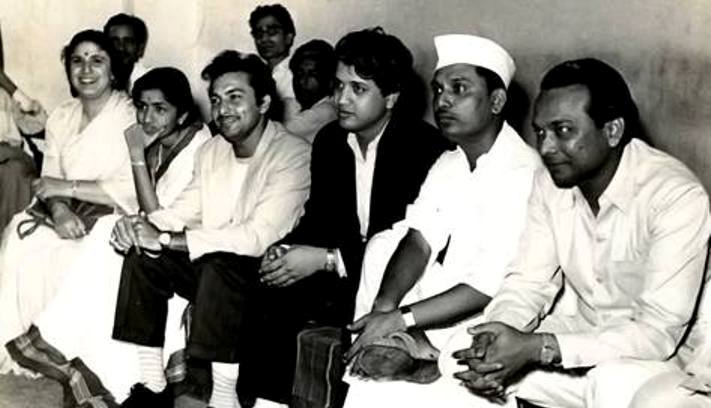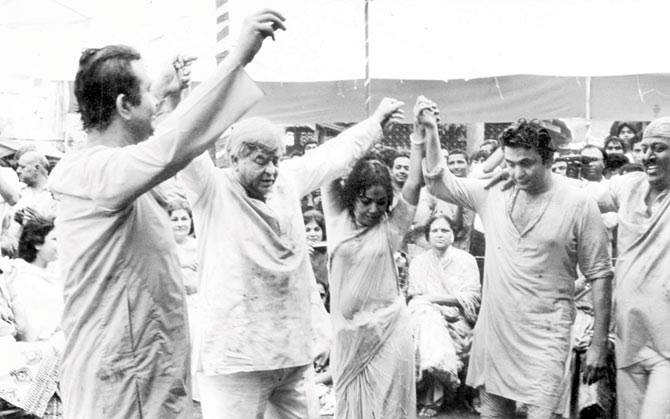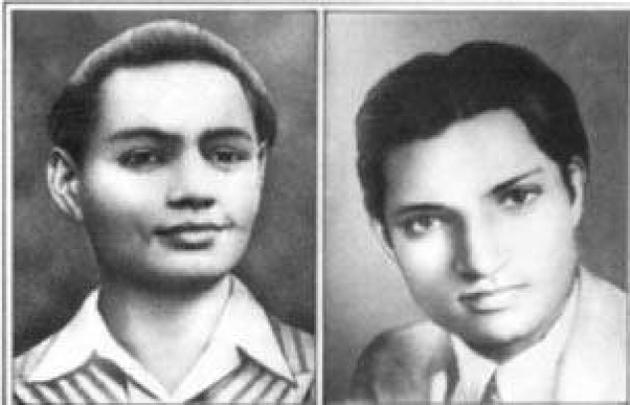The person who entertained thousands of music lovers with such enchanting composition of film songs and private ghazals was none other than Saraswati Devi the most distinguished lady music director of Hindi cinema and the first to introduce playback system for Hindi movies at Mumbai.
Saraswati Devi, born Khorshed Minocher-Homji (1912 – 1980), was a film score composer who worked in Hindi cinema in the 1930s and 1940s. She was one of the few female composers, working with Bombay Talkies, and is most noted for her score, Mein Ban ki Chiriyra Banke Bun Bun Bolun Re (Achut Kanya1936) she was the second female music director in the Indian film industry, after Jaddan Bai.
Born in a Parsi family, she had a love for music. Realizing this her father made her study Hindustani classical music under Vishnu Narayan Bhatkhande who was specialized in Dhrupad and Dhamar style of singing. Later she joined Marris College (later Bhatkhande Music Institute) at Lucknow and studied music.
With the setting up of an All India Radio station at Mumbai in the late 1920s she, along with her sister Manek, gave musical performances regularly. The programme, known as the Homji Sisters, was very popular with the listeners. The founder of Bombay Talkies, Himanshu Rai who was looking for a good classicalist for his movies, heard them on radio, got in touch with her, and invited her to visit the studio where she was shown the music room. He wanted her to take care of the music department and score music for his movies and Homji accepted the offer and took it as a challenge. Her first assignment was for the movie, Jawani Ki Hawa in 1935, starring Himanshu Rai’s actress wife Devika Rani. She had a difficult time making the actors sing and had to simplify the tunes and cover some areas with music instead of song as they were no singers and play back was still not introduced.
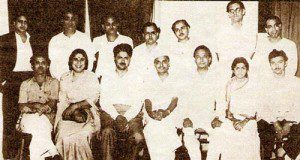
“Jawani Ki Hawa” was followed by her first hit movie Achut Kanya (1936). Ashok Kumar, along with Devika Rani, had to spend several hours a day for many days rehearsing for a song before it was filmed. Also in 1936, he gave the music for the film, Janmabhoomi, it was released during the Indian independence movement, and featured one of the first explicit nationalistic songs of Hindi cinema, “Jai Jai Janani Janmabhoomi” (Hail the land of our birth) written by J. S. Kashyap. Subsequently, a tune from the chorus of this song was used by B.B.C. as a signature tune for its “Indian News Service”.
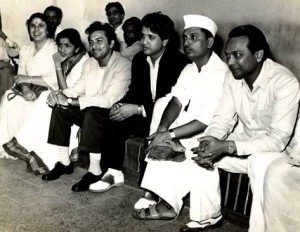
There was a big uproar and a series of protests in the Parsi community. The Bombay Talkies had some of its board of directors from the Parsi community who wanted the Parsi girls out of the talkies. It was the effort of Himanshu Rai who defended them and, to conceal their identity, Homji was given the name Saraswati Devi, while her sister who went to do roles in Bombay Talkies film was named Chandraprabha. Devi is the first female music director in Hindi Films.
Devi continued composing film music until 1961. She composed the song Koi Humdum Na Raha originally sung by Ashok Kumar in the film Jeevan Naiya (1936) and later sung by Kishore Kumar in the film Jhumroo (1961).

